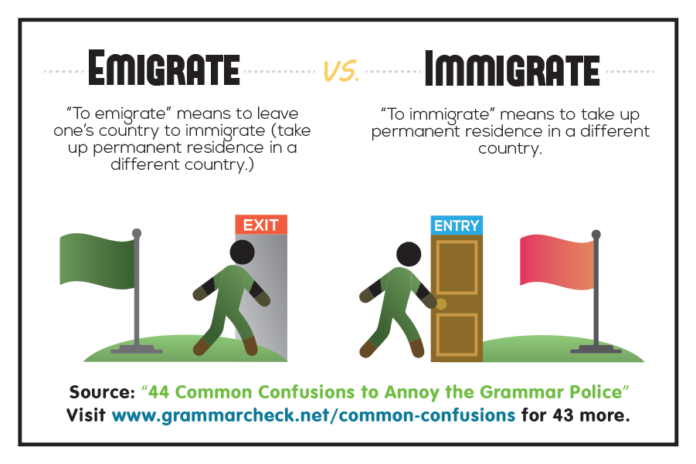Anyone who’s ever attempted to immigrate to the United States will tell you that it is a complex and lengthy process, filled with both anxiety and excitement.
And while it’s certainly daunting to enter into such a high-risk-high-reward process, your dream of living in the US can quickly become a reality with some help and expertise from an immigration lawyer.
To make sure that you’ve got all the right information and that you’re properly prepared for the legal complexities awaiting you, we’ve compiled this guide that contains everything you need to know about how to immigrate to the US.
Table of Contents
1. Determining the type of Visa or Green Card that you need
The first step that you’ll need to take is to determine which Visa or Green Card to apply for.
A good way to determine this is to ask yourself about your reasons for wanting to come to the United States. Depending on your goals, you might want to apply for the following:
- Student Visa (like the J-1 visa for exchange students, the M-1 visa for vocational students, or the F-1 visa for academic students)
- Work Visa (like the E-2 visa for investors, the L-1 visa for intracompany transfers, or the H-1B visa for specialty occupations)
- Family Visa (the K-1 visa for fiancées of US citizens, the F2A visa for children and spouses of permanent residents, or the F3 visa for married sons and daughters of US citizens)
Each type of Visa or Green Card has its own eligibility requirements and different application processes.
For example, to apply for a work visa, you’ll likely need to have a job offer from a US employer as well as some sort of proof that you’re either qualified or experienced enough to work for that employer.
As for the family visa, it is usually your relative who must petition for you to immigrate to the US, so you’ll need to prove a qualifying relationship with a US citizen or a permanent resident, among other things.
2. Gathering the necessary documentation and filling out the paperwork
Now, this is the part where a lot of issues arise during the immigration process.
Incomplete documentation and incorrectly filled-out applications are two of the most common problems with Visa and Green Card applications.
For this reason, it is advised that you locate a qualified immigration lawyer to help you with this part of the legal process, as soon as possible.
An immigration lawyer can help you gather all the necessary supporting documentation, such as proof of your identity, your employment or education history, and financial proof that you can support yourself while living in the US.
Your lawyer will also inform you about the further steps that you need to take in your immigration process, like undergoing a medical examination and a background check to ensure that you’re healthy and not a public threat to the citizens of the US.
3. Applying for a Visa or Green Card
Once you’ve gathered all the necessary documentation, that’s when your application process begins.
Applying for a Visa or Green Card is usually done through online forms. The competent authority that handles your application is USCIS, otherwise known as the US Citizenship and Immigration Services.
Besides reviewing your application and the supporting documents, USCIS will also conduct an in-person interview with you to make sure that all the information you’ve provided them is true and that you’re indeed eligible to become a US citizen.
Keep in mind that even if you’re already living in the United States and applying for a Green Card from within the country, you may still be ineligible for an adjustment of status.
A reason for this might be if you entered the country illegally or have a criminal record, in which case you’ll have to leave the country and reconsider your application through consular processing.
If you end up being eligible for adjustment of status, you should know that this process also involves completing additional forms, paying separate fees, and attending another interview.
Processing of your application can take a while, and delays due to a backlog of applications are not uncommon. The only two things that you can do about this are to:
- Be patient and
- Check for current processing times on the USCIS website
4. Paying the Visa or Green Card fees
The fees you’ll need to pay to obtain permanent resident status in the US will vary depending on the Visa or Green Card that you’re applying for.
For example, the I-130 visa fee is currently $535, while the fee for the adjustment of status is $1,140.
You’ll also need to pay fees for certain services, including the $85 fee for your biometric appointment and varying fees for your medical examination appointment.
Depending on whether you need additional services to translate necessary documents from your native language into English, you’ll likely also have to pay a translator’s fee.
In total, your fees may range from a couple of hundred dollars to several thousand dollars, depending on your specific situation. To get a precise quote, contact an immigration lawyer.
5. Making arrangements to move to the United States
Once your Visa or Green Card has been approved, you’ll still need to take some steps before moving to the United States.
These might include:
- Finding a place to live
- Arranging transportation
- Obtaining a Social Security number
- Applying for a driver’s license and
- Others
While the federal government has jurisdiction over immigration laws in the US and they’re practically the same throughout the whole country, some matters are handled at the level of the states.
For example, each state might end up having its own laws regarding education and public benefits for immigrants. So, if you’re considering immigrating to New York, let’s say, you might want to find an immigration lawyer in New York to help you out with that.
Final notes
A once-issued Green Card is not permanent.
Typically, it’ll last you for 10 years, and then you’ll need to submit it for renewal before it expires. Furthermore, you must hold it for at least 5 years before applying for naturalization.
Keep in mind that violating the terms of your status or committing certain crimes can lead to deportation.
If you have any other questions or concerns about your immigration process, it is best that you consult with your immigration attorney.





